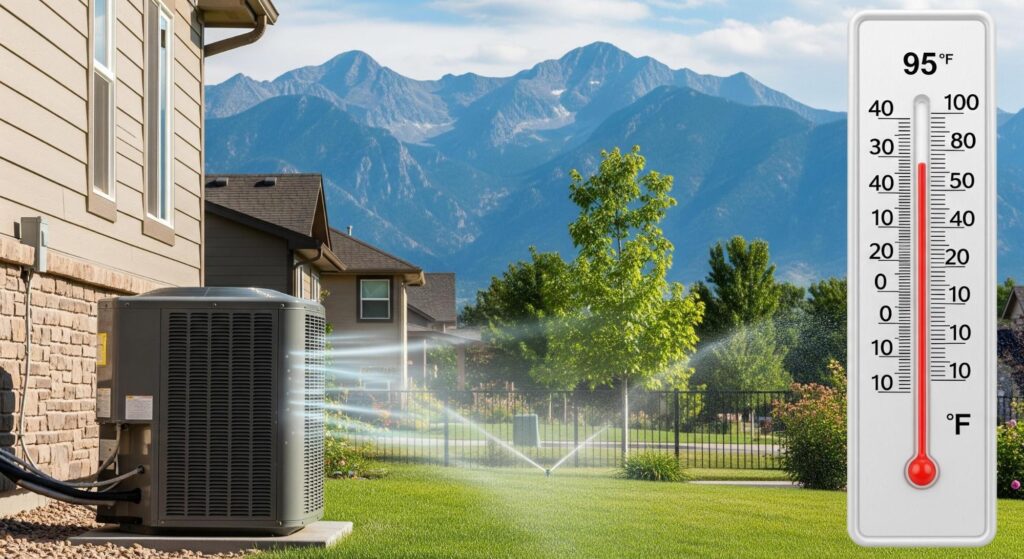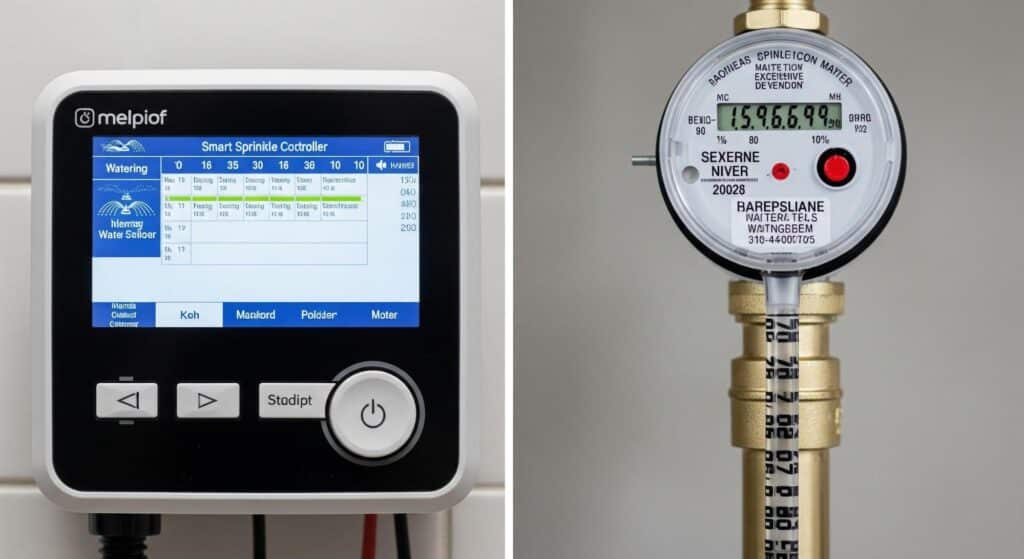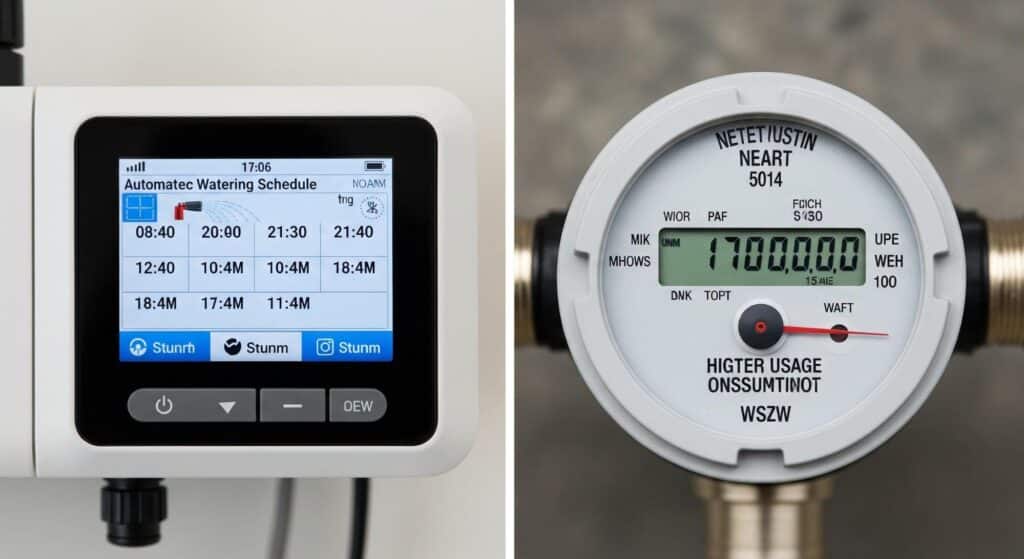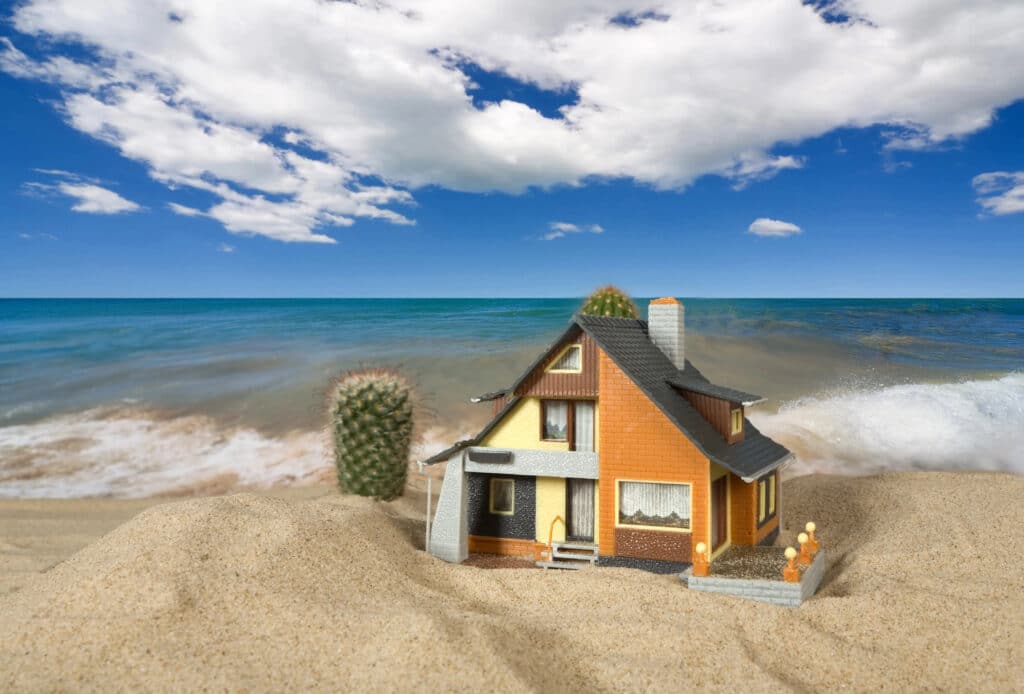
Hey there, Mile High neighbors!
So here we are again, another scorching Denver summer, where the Rockies are playing ball and my phone is blowing up with emergency calls. Just yesterday, I got three calls before noon from folks whose AC decided to quit when the thermometer hit 96°F.
After 15 years crawling through attics (and trust me, a 140-degree attic in July ain’t fun), I’ve learned a thing or two about keeping Denver homes cool without going broke. Let me share what works.
Why Denver Summers Are Tough on Your Home Systems
Look, living at 5,280 feet is amazing most of the year. But summer? That’s when things get interesting. Last year, we hit 101°F. Six days over 100! And here’s what most people don’t realize: your AC has to work about 20% harder up here than it would in, say, Kansas City. The air’s thinner, which means less efficient cooling.
Then there’s our water. Oh man, our water. Denver’s got some of the hardest water in the country. We’re talking mineral content that’d make a geologist excited. Mix that with those crazy afternoon storms that roll in outta nowhere, and boom, recipe for disaster.
People always ask me, “How much is it gonna cost if my AC dies?” Well… emergency repairs typically run $300-$800. But last week? I had to break it to a family in Park Hill that their compressor was toast. That bill? $3,200. Ouch. And about those summer vacations, YES, please prep your house before you head to the mountains. I’ll tell you exactly how. Check out Sky Rye Design’s maintenance tips for more ideas.
Keeping Your AC Running Strong (And Your Home Looking Good)

Your air conditioner right now? It’s running a marathon in Death Valley while breathing through a straw. No joke. And that stat about dirty filters using 15% more energy? That’s real money, like $30-$50 extra every month, just because you forgot to change a filter.
Here’s the thing about Denver: those cottonwood trees are beautiful, but their fluff? AC killer. Last Thursday, I pulled enough cotton outta one unit to stuff a pillow. Not kidding. And don’t even get me started on what our hard water does to condensate drains. It’s like… imagine pouring milk down your drain every day. Eventually, it’s gonna clog.
DIY Tip: Install a decorative AC screen (they’re now available in cool patterns) to block cottonwood while maintaining your curb appeal. Takes 20 minutes, saves hundreds in service calls. For the condensate line, pour a cup of white vinegar down it monthly to keep minerals from building up, and it’s safe for your landscaping.
Quick story: I had a customer near Sloan’s Lake whose AC kept freezing up. It turns out that mineral buildup on the coils reduces efficiency by almost 40%. FORTY PERCENT! That’s like trying to cool your house with a box fan. At Prime Plumbing & Heat, this stuff’s our bread and butter. Yeah, we offer 24/7 emergency service because AC units don’t care that it’s 2 AM on a Sunday. But honestly? I’d rather help you avoid that midnight panic altogether.
Smart Water Management That Saves Money (And Your Landscape Design)

Alright, let’s talk water bills. Mine last August? $287. For a modest lawn! And I KNOW what I’m doing.
Denver Water’s rules are strict; watering is only allowed between 10 a.m. and 6 p.m., and it is limited to 2-3 days a week. But here’s a secret: it’s not about watering more, it’s about watering smarter. Those smart controllers everyone’s talking about? They work. Cut my neighbor’s bill by 30%.
Design-Smart Solution: Consider xeriscaping your parking strips and side yards, and keep grass only where you use it. Native plants like Blue Grama grass and Blanket Flowers look amazing and need 75% less water. Plus, Denver Water offers rebates up to $1.75 per square foot for lawn replacement.
But the real budget killer? Leaks. One dripping hose bib, you know, that thing you attach your hose to, wastes 3,000 gallons a year. With Denver’s tiered rates, that’s expensive water going straight down the drain. And broken sprinkler heads… man. Saw one last month that’d been gushing for who knows how long. Customer’s bill? $463. For ONE MONTH.
Weekly 5-Minute Check: Every Saturday morning, do a quick walk. Look for:
- Soggy spots in the lawn (broken sprinkler line)
- Water stains on concrete (leaking hose bib)
- Sprinkler heads spraying sideways or geysering
- Mineral deposits on outdoor faucets (our hard water leaves white crusty buildup)
Pro tip: Replace those rubber hose washers every spring. It costs $3, but saves hundreds. For more water-efficient landscape ideas that still look magazine-worthy, this guide on smart home systems has solid advice.
Vacation-Proofing Your Home: Don’t Come Back to Disaster

Nothing, and I mean nothing, ruins a vacation faster than coming home to disaster. Trust me on this one.
True story: The Family went to Breckenridge for two weeks. Didn’t shut off their water. The washing machine hose burst on day 2. They came home to… well, let’s say their basement looked like a swimming pool. The smell alone…
Here’s what you need to do: Turn off the main water valve. I don’t care if it seems excessive. Just do it. Set your AC to 85°F, not off! OFF is bad. Unplug stuff, too; our summer storms don’t mess around.
Quick Vacation Checklist:
- Main water valve: OFF (usually in basement near water heater)
- AC setting: 85°F (saves energy but prevents humidity buildup)
- Smart tip: Put a few ice cubes in a cup in your freezer. If they’re melted and refrozen when you return, you’ll know if you lost power
- Consider stylish timer switches for lamps, which make it look like someone’s home
And those gutters? Clean ’em. Seriously. One afternoon thunderstorm can dump 2 inches in 20 minutes. Where’s that water going if your gutters are clogged? Right into your basement. For more home protection tips, Sky Rye Design has you covered.
People ask if they should have someone check their place while they’re gone. For anything over a week? Absolutely. Costs may range from $50 to $ 75 per visit. Compare that to mold remediation ($2,000+) or replacing a fried AC compressor ($5,000+). No-brainer, right?
Well, neighbors, there’s your survival guide. We’ve all been there: the AC dies during a Broncos game, sprinkler geysers at dawn, that water bill that makes you question reality. But hey, that’s Denver living, right? The good news? We’re here 24/7 when stuff hits the fan. Or when the fan stops hitting… You get it. Stay cool out there, and remember: No heat in winter? No sweat. No cooling in summer? Still no sweat, just give us a holler at Prime Plumbing & Heat!
- 0shares
- Facebook0
- Pinterest0
- Twitter0
- Reddit0



